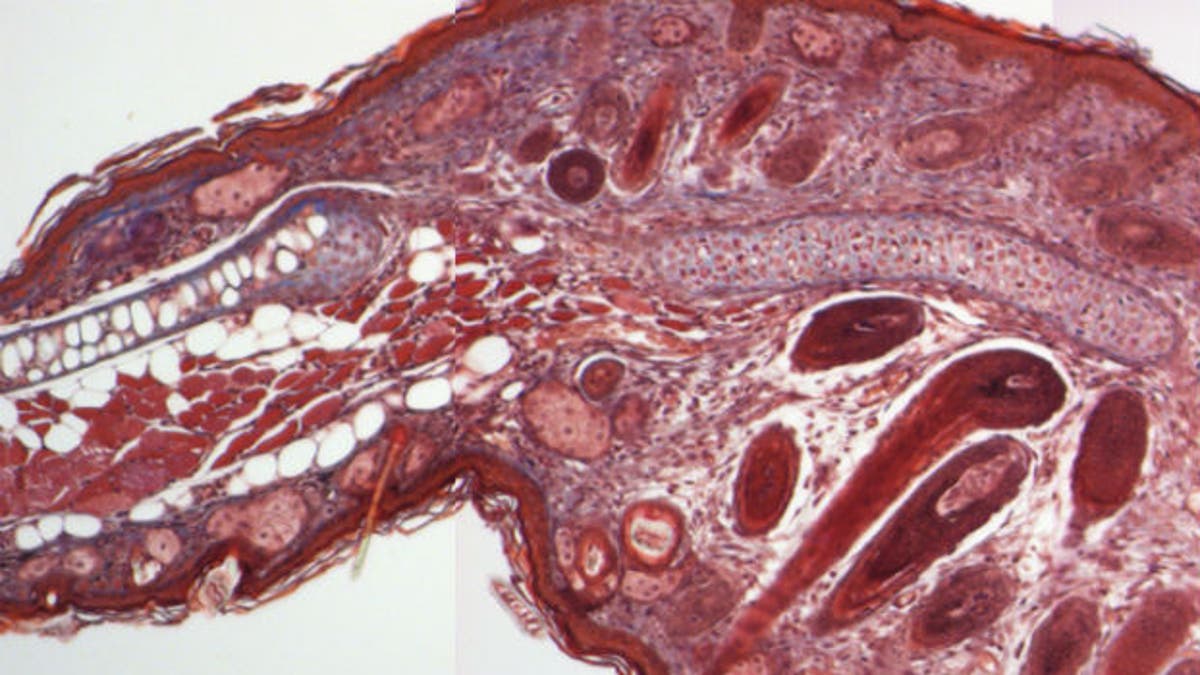
A microscopic view of an original and regenerated African spiny mouse ear. Credit: Ashley W. Seifert
For the first time, biologists studied a mouse native to Africa that can escape predators by losing patches of skin that regrow quickly. Their research could one day lead to scar-free tissue regrowth for humans.
Panda Cub Dies at National Zoo
The African spiny mouse in the Acomys genus literally jumps out of its skin when grabbed, losing up to 60 percent of it. Turns out these deep lesions regenerate rapidly without scarring. Biologists led by postdoc fellow Ashley W. Seifert at the University of Florida caught two wild mice and tested them to find out what causes this phenomenon. Their paper will be published in Nature on Thursday.
"These guys had been known to lose their tail, but no one had ever reported on skin dislodging from their body," Seifert said.
When Seifert and his colleagues trapped two mice in central Kenya, an Acomys kempi and an Acomys percivali, just handling the mice in the field caused them to lose skin. Seifert compared it to the difference between grabbing a paper towel and a piece of tissue paper.
The biologists found that after only three days, five of the six skin wounds had completely "re-epithelialized." Perhaps even more impressive: The mice could regrow damaged hair, retaining the original color, within 30 days.
That feat is incredibly difficult for mammals to achieve according to Elly Tanaka, a professor specializing in animal models of regeneration at the Technical University of Dresden who also wrote a commentary for Nature's News and Views section. Usually that kind of rapid regrowth is only found in amphibians like salamanders.
Microscope Hats Peer Inside Mice Brains
In order to test just how well the mice could regenerate tissue, the biologists hole-punched the mice's ears. The holes closed up in a way reminiscent of how salamanders regenerate limbs, Seifert said.
"This study," the authors wrote, "suggests that mammals may retain a higher capacity for regeneration than was previously believed." Although, as Tanaka pointed out, the biologists don't address whether the mouse's regenerative abilities also alter its immune response, the fact that mammals can do this is exciting.
Seifert said he and his colleagues will continue studying the mice. They plan to create a colony of them in the United States and research regeneration comparatively across different species with the hope of finding a basic blueprint. The prospect for humans is nothing less than scar-free healing.







































